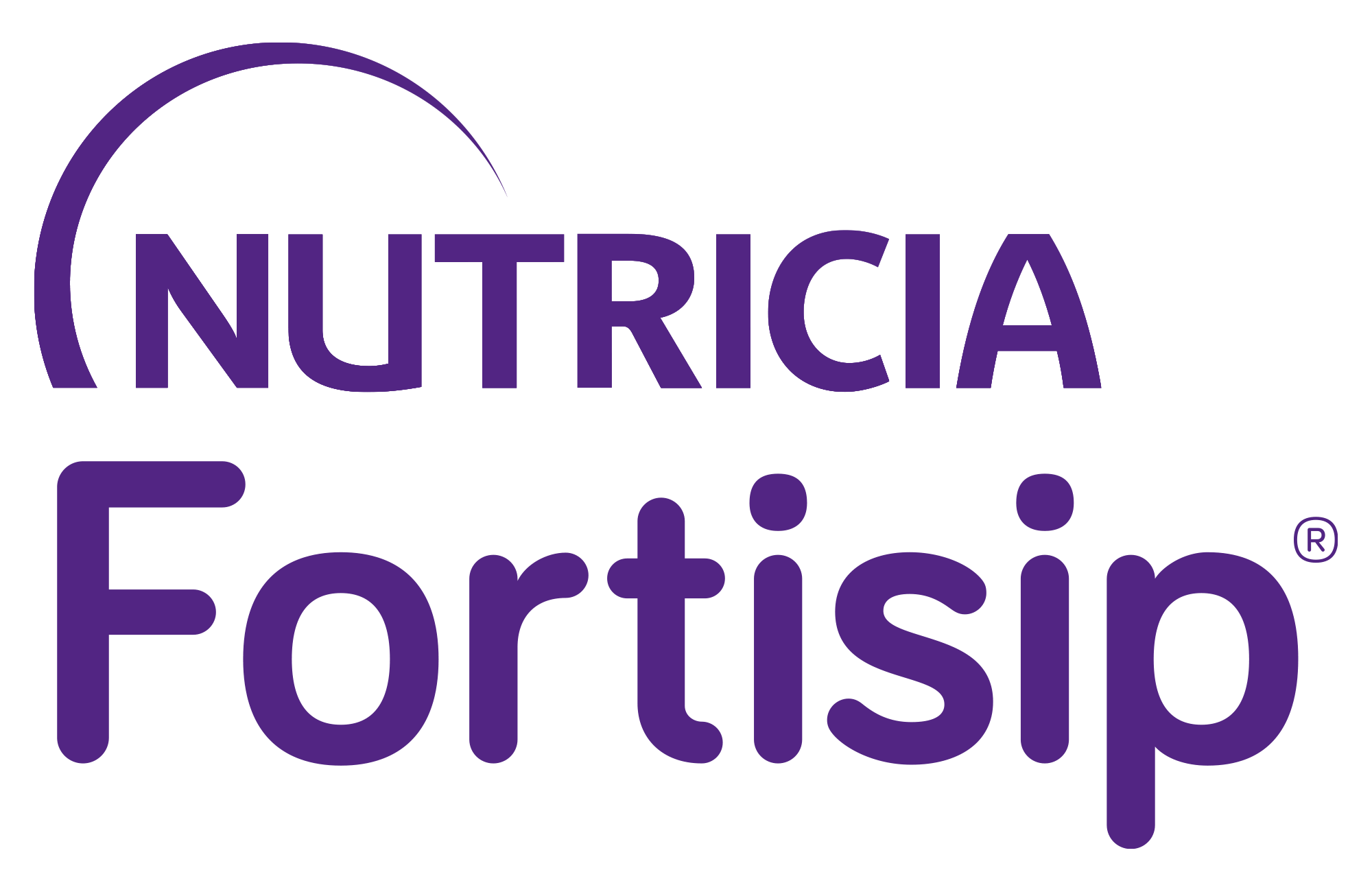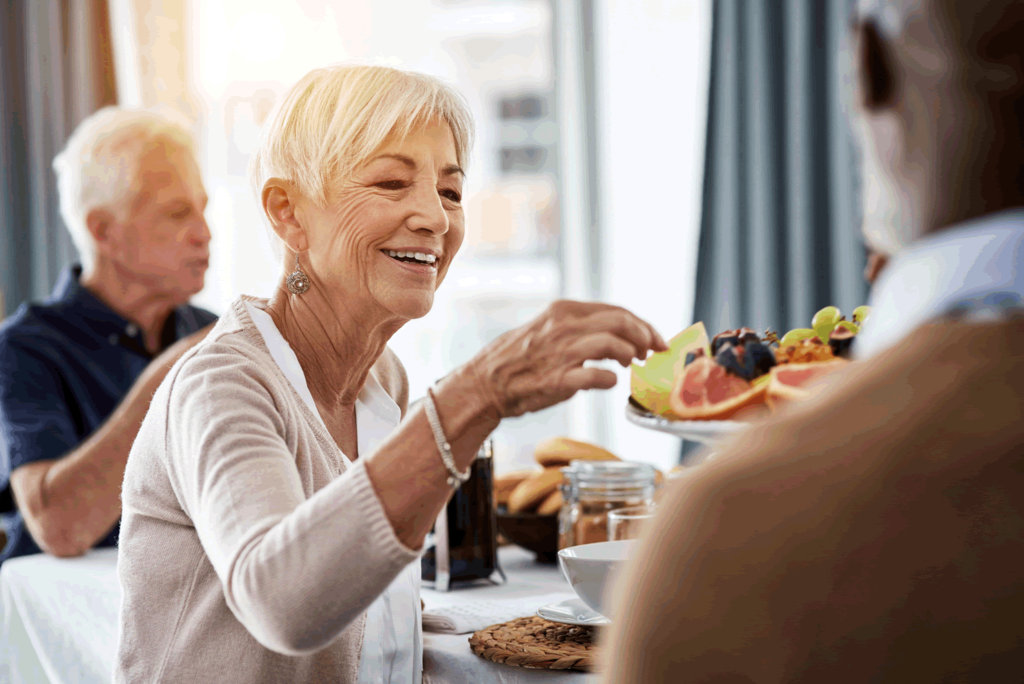Cancer, weight loss and nutrition
Weight loss and cancer are closely linked. In fact, weight loss is one of the most common side-effects in people diagnosed with cancer1. Although common, it’s not something that should be ignored, as it can affect treatment and recovery2.
Do you always lose weight with cancer?
Between 30% and 80% of those diagnosed with cancer may lose weight at some point during their journey, depending on the site of the tumor1. Worryingly, malnutrition is considered the cause of between 20% and 40% of all cancer-related deaths3.
Why do you lose weight with cancer?
There are lots of reasons why people lose weight when they diagnosed with cancer. Before a diagnosis, unexplained weight loss may be an early sign that something is wrong, particularly in cancers affecting the lungs, pancreas, stomach or oesophagus4. This is caused by the body releasing substances called cytokines, which help fight the disease, but also have the unfortunate side effect of causing weight loss and muscle loss, as well as a loss of appetite5.
Before and especially during treatment (e.g. chemotherapy, radiotherapy), a person may not feel like eating or drinking because of a lack of appetite or because of mouth ulcers, a dry mouth, constipation, diarrhoea, nausea, vomiting, taste changes or pain. Treatment can also negatively affect how well the body absorbs and uses the nutrients it gets from food5, further worsening weight loss.
Although weight loss is common in cancer, eating less can mean the body may not get the energy, protein and other nutrients it needs at a time when it needs to be at its strongest to undergo treatment. It should therefore not be ignored.
What is cancer cachexia?
Losing weight can be seen as a good thing, especially for those who have always struggled to manage their weight – but when undergoing cancer treatment this is not the right time to lose weight. This is because when you lose weight, you mostly lose the strong, protective muscle tissue needed to help fight cancer, rather than fat tissue6. This loss of muscle tissue (or ‘lean body mass’) is known as cachexia6. Cachexia can lead to mental and physical tiredness but also, perhaps more importantly, can lower tolerance of treatment, which could negatively affect your chances of survival1,6.
How does your body mass index affect cancer treatment success?
The optimal chemotherapy dose for a person with cancer is based on, amongst other factors, weight and height, also known as body mass index (BMI). Any changes to weight from when you are first diagnosed can have a direct and negative impact, as you may no longer be able to tolerate the full chemotherapy dose; more seriously, a significant reduction in BMI could delay treatment altogether7-9. By maintaining good nutritional intake, you can help reduce your risk of losing additional muscle weight in the future and therefore help your body to tolerate the optimum treatment dose.
What nutrients are most important in cancer?
Good nutrition is all about getting the balance right – the balance of nutrients that your body needs to function well, to cope with treatment and to keep as active as possible. However, in cancer, some nutrients are particularly important:
- Protein: Important for building and repairing body cells, getting enough protein is important for those diagnosed with cancer wanting to maintain or regain lean body mass. International guidelines recommend those living with cancer consume almost twice the amount of protein that a healthy person needs (1-1.5g protein/kg body weight/day vs 0.75g/kg/day for the general healthy population)10
- Omega-3 polyunsaturated fatty acids: With anti-inflammatory properties, this nutrient can help stabilise or improve appetite, food intake, lean body mass and body weight10
- Micronutrients, such as vitamins, minerals and trace elements: Those diagnosed with cancer often have micronutrient deficiencies due both to reduced food intake and the aggressive nature of some treatments11,12
- Dietary fibre: Essential to a balanced diet, those diagnosed with cancer can benefit from consuming the right quality of fibre to improve stool consistency, especially those who are suffering from diarrhoea as a side effect of radiotherapy or chemotherapy13
What to do if you are struggling to eat or losing weight?
If you are living with cancer and struggling to eat and drink, lost weight unintentionally, or have concerns about your diet, you should talk to your healthcare professional. It is important to remember that you don’t need to wait to be asked about your concerns. It is ok to start the conversation with the oncologist and the supporting healthcare team.
Oral nutritional supplements can help keep the body strong
If you are still struggling to eat and drink and/or maintain weight, you may be advised by your healthcare professional to start taking an oral nutritional supplement. These are specially designed foods and drinks that help people living with malnutrition meet their daily nutritional needs when their usual diet is not enough, providing the extra energy, protein, vitamins and minerals they need.
When started early during a cancer journey, oral nutritional supplements have been clinically proven to reduce weight loss. This is important, to continue cancer therapy and is therefore related to better treatment outcomes14. Oral nutritional supplements are also available in a range of flavours and formats including milkshakes, juice style, and dessert formats.
References
- Ryan et al. Proc Nutr Soc. 2016;75(2):199-211.
- Bozetti 2008 and 2001; Bosaeus 2001; Hebuterne et al, 2014 JPEN J Parenter Enteral Nutr.;38(2):196-204.
- Andreyev HJ et al. Eur J Cancer. 1998;34(4)p.503-9.
- Hebuterne X et al. JPEN, 2014;38:196.
- Argilés JM, et al. Curr Opin Support Palliat Care 2009; 3: 263–68.
- Fearon K et al. Lancet Oncol, 2011;12(5):489-95.
- Capuano G, et al. Head Neck 2008;30:503-8.
- Andreyev HJ, et al. Eur J Cancer, 1998;34:503-9.
- Rickard KA, et al. Cancer 1983;52:587-98.
- Arends J, et al. ESPEN guidelines on nutrition in cancer patients Clin Nutr, 2016; epub.
- Grober U, et al. Nutrients, 2016;8(3):163.
- Ströhle A, et al. Oncology Reports, 2010;24(4):815-28.
- Garcia-Peris P, et al. Eur J Clin Nutr, 2016;70(2):170-174.
- Martin L Senesse P et al. J Clin Oncol 2015 Jan 1: 33(1):90-9.

